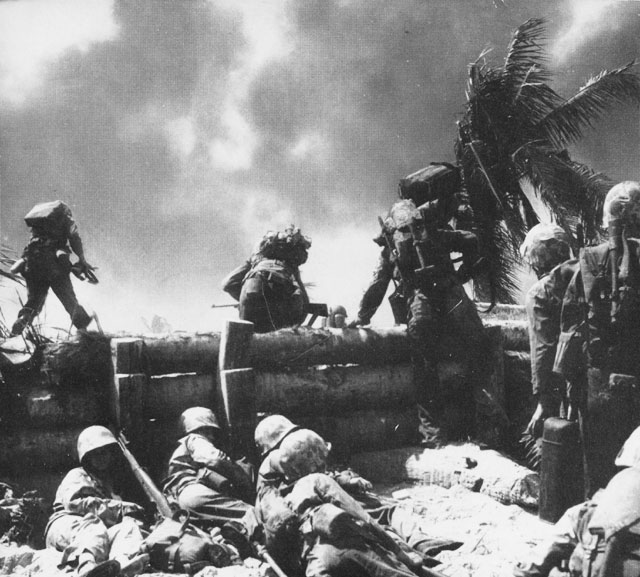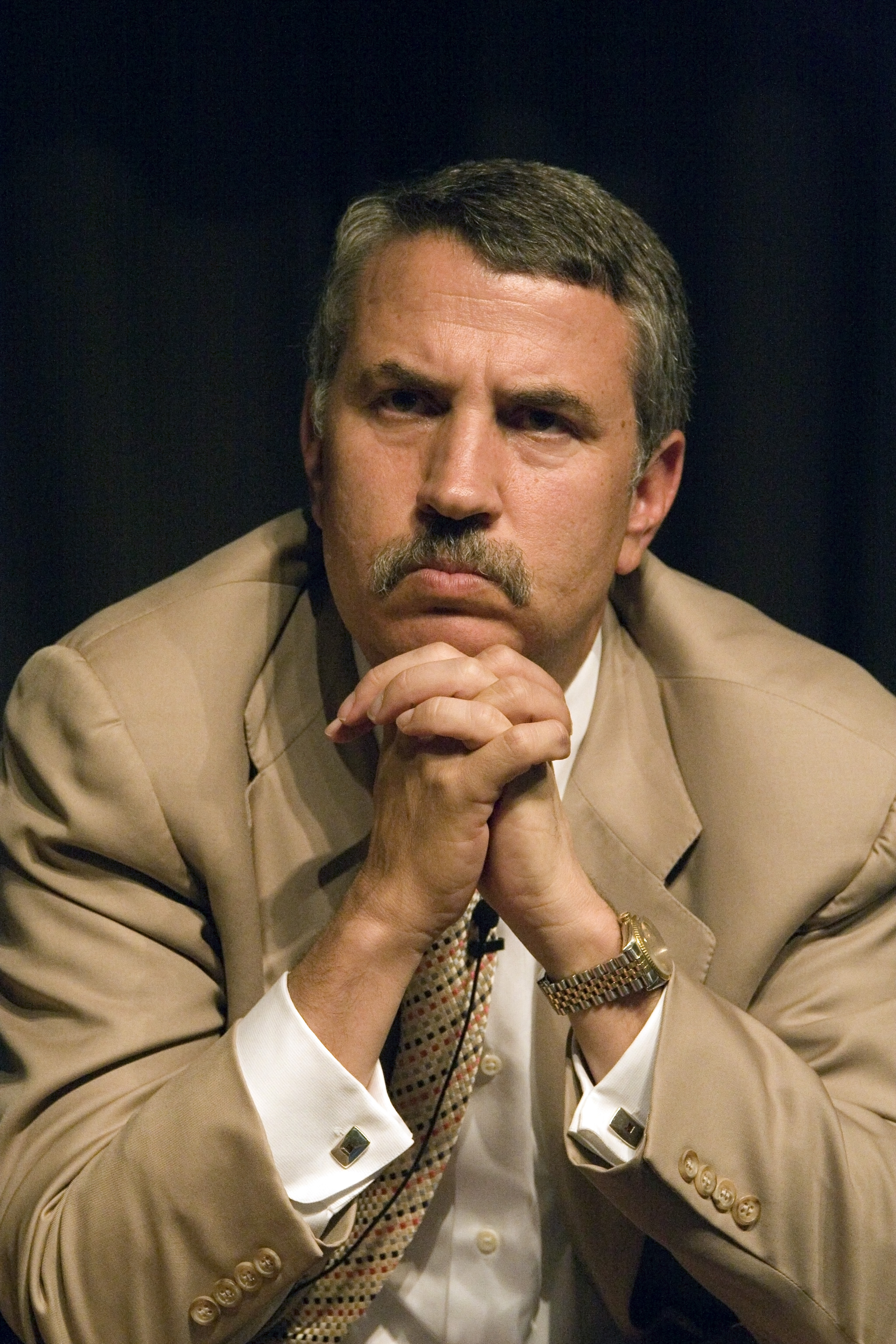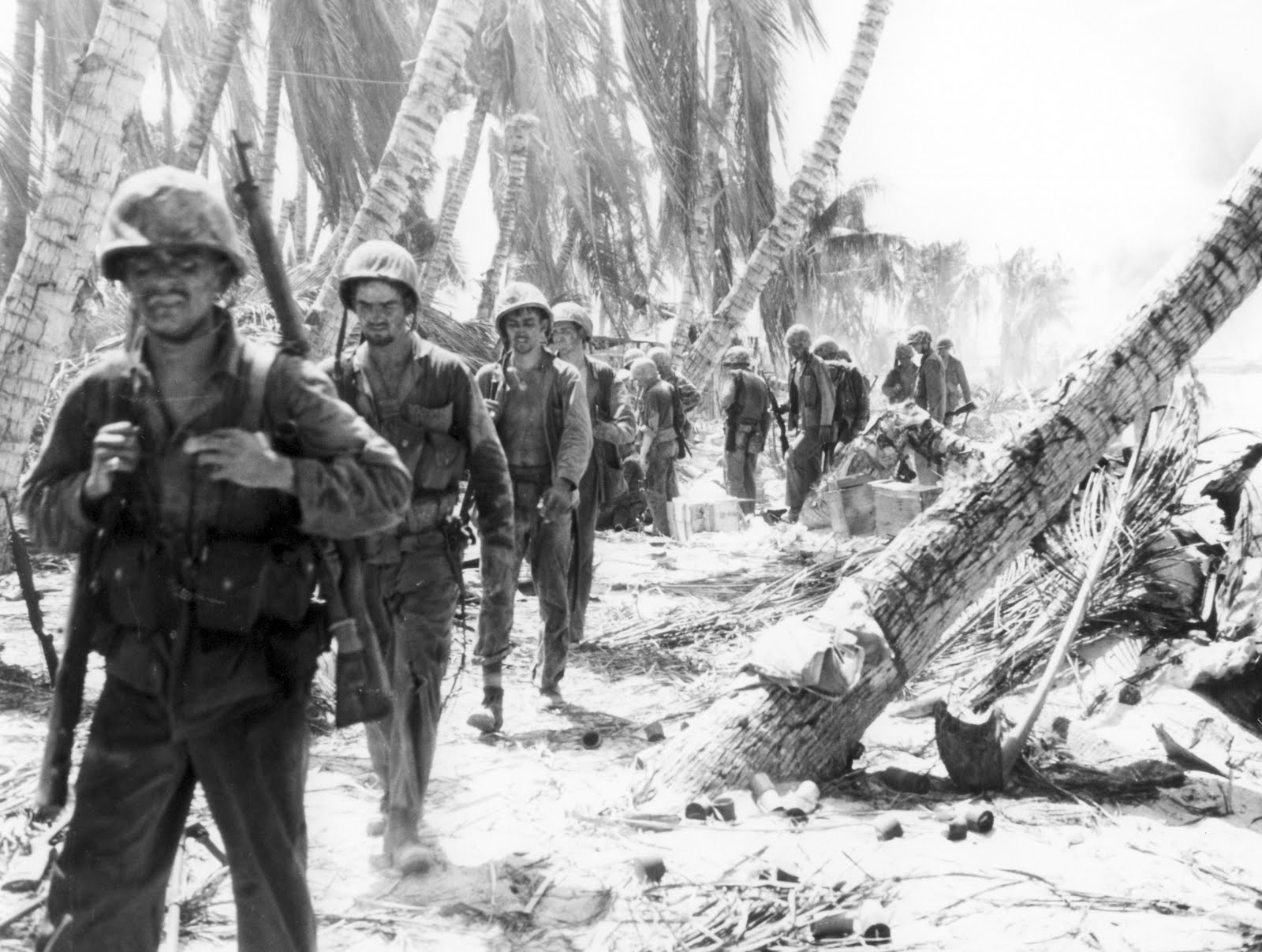Like most men of his generation, Roy had never talked about his experiences during World War II. But a few months before his death, we walked, he talked and I listened.
 As a Marine he had seen the worst in the Pacific Theatre—Tarawa, which still has the highest casualty rate of any battle in American history; Saipan, where Japanese mothers, clutching their babies, jumped from the cliffs as American soldiers approached; and Nagasaki after the bomb, which probably put in him in an early grave from exposure to radiation.
As a Marine he had seen the worst in the Pacific Theatre—Tarawa, which still has the highest casualty rate of any battle in American history; Saipan, where Japanese mothers, clutching their babies, jumped from the cliffs as American soldiers approached; and Nagasaki after the bomb, which probably put in him in an early grave from exposure to radiation.
His stories were harrowing, all the more so because he told them with a calm factuality that belied intense emotions kept in check for decades. He spoke of how much he hated ‘Japs’ during and after the war, but how in his work as an engineer building the interstate highway system in California, his hatred dissolved in the friendship with a Japanese co-worker. He hated no one, just war.
He died before the Cold War ended. I’m glad he didn’t live to see the country America has become. This culture of narcissism, materialism and escapism that America is not what he fought for.
He detested the need to manufacture heroes. Real heroes run from that word as surely as they run toward their friends in need on the battlefield.
Democracy, like heroism, has become a nearly meaningless word in America. The old voices set a very low bar. At least our elections show “that there is a way to effect change other than through barricades or sham ballots,” they intone.
Internally, the American spirit has been reduced since 9.11 to endless harping on terrorism and hyping of heroes, fed by fear of foreign, viral invasions of all kinds, literal and metaphorical.
Externally, the nation-state system is unraveling and in its death throes, yet discussing creating a new order, based on the global reality all people now share, is seen as unconstructive and utopian. Nationalism is a given, and not to be questioned.
Given the incontrovertible internal collapse of America, it takes a bottomless pit of chutzpah for someone like Thomas Friedman, who had more to do with anyone outside the US government for America’s “war of choice” in Iraq (he coined the phrase and promoted the policy) to talk about “makers and breakers” on the Internet.
After all, if there is one event that spread terrorism like a virus around the world, it was the amoral and illegal invasion of Iraq after 9.11—launched under the pretext of preempting terrorism.
Friedman asks an utterly disingenuous question: “Why do some people respond to malaise with constructive, creative energies and use the Internet to scale them, and others with destructive creative energies and use the Internet to scale those?”
and use the Internet to scale them, and others with destructive creative energies and use the Internet to scale those?”
Of course he is the judge of what is constructive and what is destructive. The real question is, why are old media mouthpieces like Friedman so threatened by “superempowered” voices in the new media?
Because they know, subconsciously if not consciously, that the falsehoods upon which their positions and notoriety were built are crumbling beneath their feet, and are striking out against truth-tellers, whom they call “the breakers.”
They and their ilk have given us the egregious political and economic culture we have, and they are to blame for the malaise that has ensued from the internal collapse of the old system.
A core premise of Friedman’s philosophy is contained in a longer quote by one of his ‘maker’ heroes, who exclaims, “There must be a technological solution.” There is none, and most people now know it. As the saying goes, “From where does the power come from to finish the race? From within.”
Friedman is a leading voice of old America, which is not merely suffering a temporary malaise, but is irreversibly moribund. He offers no response except more of the same mentality that got us to the meaningless pass—“raise capital, sell goods or services and discover collaborators and customers globally.”
Like the money and power he speaks for, Friedman and his ilk will not go quietly into the dawn, but will continue to rage, rage against the coming of the light.
In the old, deceased and now diseased America, business people were driven by the question: How can I generate widespread desire for new products? Politicos, and the pundit class supporting them are still asking, how can I keep America economically and politically dominant?
Now young people, and even many technologists are driven by the question: How can I make people’s lives better? Whether one calls that the end of patriotism, or a complete redefinition of patriotism (if caring for human beings irrespective of nation can be called patriotic), it’s happening and will continue to happen.
That basic re-orientation, from external to internal, from us-vs.-them to there-is-no-them-just-us, marks the beginning of a radical change, and it is the true hope of the world.
And the first step in creating a healthy culture, now that the American culture has become so toxic at home and abroad, is exposing the lies, falsehoods and illusions that continue to underwrite it to the light of day. The philosophical rubble of the old order has to be cleared away before a new civilization can be built.
Reporters and journalists used to do that. Far too many now have become cheerleaders for techie startups signing multimillion-dollar deals.
The real breakers of spirit are those that serve the status quo, think in terms of ‘my country’ while giving lip service to globalization (‘the world is flat’), and continue to apply an outmoded, destructive and externalizing mentality to the immense problems and challenges all human beings face in the global society.
Martin LeFevre

